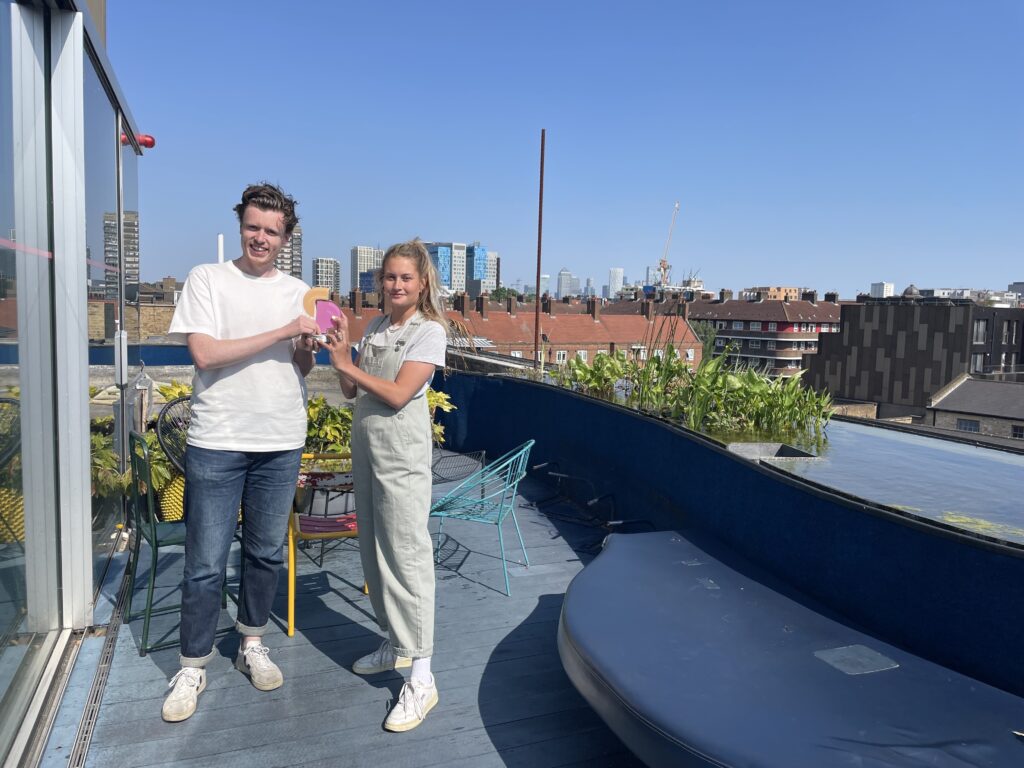CharlieHR’s novel approach of acting ‘as a playground’ that experiments with different policies and processes impressed the judges and saw the company win the Brand category. A year on, we caught up with Amy Cowpe, Chief of Staff, and Finola Rance, former People and Talent Manager, to learn of exciting new developments and how CharlieHR maintains its experimental mindset.
Is your work culture authentic to your external brand and company values? Could you be the next Brand category Culture Pioneer Awards winner? This year’s entries are now open.
How did it feel to win the 2022 Culture Pioneer Awards Brand category?
Amy: We were absolutely thrilled! Here at CharlieHR, we’re on a mission internally to experiment with ways we can be a place where people can and want to do their best work.
To have this mindset recognised in the form of this award really affirms that we’re facilitating a progressive and high-performing workplace.
CharlieHR stood out as a playground for trying different processes, initiatives and activities. What have you been playing with since winning?
Finola: We recently enhanced our parental leave policy. It’s now equal parental leave, 10 weeks fully paid, two weeks 50% to eight weeks 25% debt, which is a big improvement on the six weeks at 100% pay.
We’ve also enhanced our nomad working policy from 30 to 90 days a year and I’m also revisiting our parental leave policy.
I’ve just done a two-month stint in New Zealand working remotely and we’re going to be using this to tweak our remote working policy a bit more.
We always remind ourselves to stay in the experimental mindset, which can be something as little as playing around with how we announce promotions
We were getting a lot of feedback that the team wanted more in-person connection time, so we are trialling a test called ‘An Evening With…’, whereby one evening a week for a month someone in the company hosts an evening. We had someone take us rock climbing, someone did a wine-tasting club, we had a virtual cocktail-making class. So far, this has been really successful.
We always remind ourselves to stay in the experimental mindset, which can be something as little as playing around with how we announce promotions.
Typically, we only used to announce when people go up a full level as we have quite a structured progression framework – full levels and sublevels – but this month we are now trialling announcing all promotions.
How do you come up with these ideas and decide whether or not they’re working?
Amy: We always make sure we set really clear success metrics.
We’ve got an experiment log, so we ensure we’re logging what the experiment is, our success metric and when we’re going to read the measure.
Then we’ll make a call based on that; whether it’s tweaking, discontinuing or keeping it as per.
Deciding what we’re going to experiment with is a combination of predefined priority areas but if ideas come up multiple times, we know it’s worth looking into.
Alongside the nine-day fortnight, we implemented ‘Deep Work Wednesday’ where no meetings are scheduled, to allow people space for deep work to compensate for lost hours
Is there anything that has not gone quite as well as you thought it might?
Finola: With our current nomad working policy, you can work from anywhere in the world as long as you ensure there is a three-hour working overlap with the UK team.
After testing this out myself by working in New Zealand (my home country) I found that the three-week mark of continuous work was where burnout started to happen. I felt very disconnected from the team.
However, I was even more productive during the hours that did not overlap with the UK team as I had no distractions.
Also, the feedback loop with the person I manage worked really effectively so it definitely wasn’t a failure and it was only one test in the most wildly opposing time zone so we won’t be changing the policy as of yet.
We’re on a mission internally to experiment with ways we can be a place where people can and want to do their best work
CharlieHR was trialling a nine-day fortnight. How is that going?
Amy: Really well. We’re coming up to 18 months and have no intention of discontinuing it.
It’s very hard to objectively measure the data around it but, from the tools we’ve got, we’ve noticed no drop in either productivity or engagement.
It’s constantly recognised as the thing Charlie’s doing really well and it sets us apart. It’s been a valuable attraction and retention tool and also gives us the space for other priorities.
How did you facilitate the transition to the new way of working?
Finola: Alongside the nine-day fortnight, we implemented ‘Deep Work Wednesday’ where no meetings are scheduled, to allow people space for deep work to compensate for lost hours.
We also have a roster to ensure we still have full coverage. For example, customer-facing teams rotate to make sure someone is in each Friday to cover the full fortnight.
Be really clear on your vision for the company and the type of company you want to create
How are you supporting employees through the cost-of-living crisis?
Amy: We have weekly interviews with employees in which we sequentially rotate based on seniority and team. We ask how they are financially and how they’re doing, and give them the choice to answer as it is a very personal question.
We’ve got a really open dialogue between people managers and team, and we have mental health first-aiders so if people are struggling, they have supportive people they can go to.
We also extended the scope of everyone’s individual wellbeing, L&D and flexible working budgets so they can use them for energy bills, supermarket shops and other things affected by the economic crisis.
Do you have any advice for this year’s Culture Pioneer Awards entrants?
Finola: Be really clear on your vision for the company and the type of company you want to create.
Important questions are:
- What is your definition?
- What employer brand do you want to achieve?
- What does working at your company look like?
- How do you feed back between employees, managers and leaders to be continuously clear on how people are feeling and what type of work they are doing?
- How does this match up to your employer brand?
- What success metrics are you using?
- How do you iterate?
- If something has not quite gone to plan, how do you approach this and how do you pivot to align internal to external branding?
If you enjoyed this, read: Why you should enter the 2023 Culture Pioneer Awards









